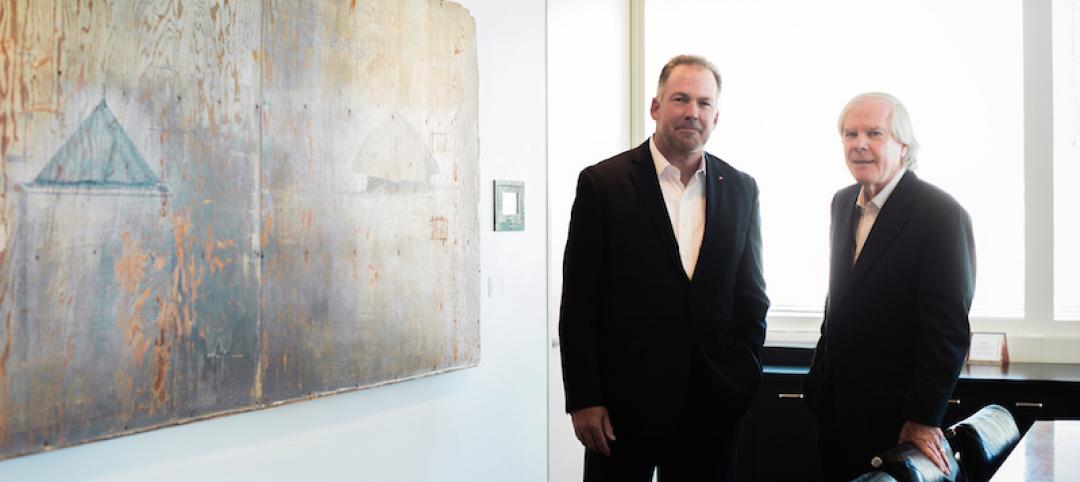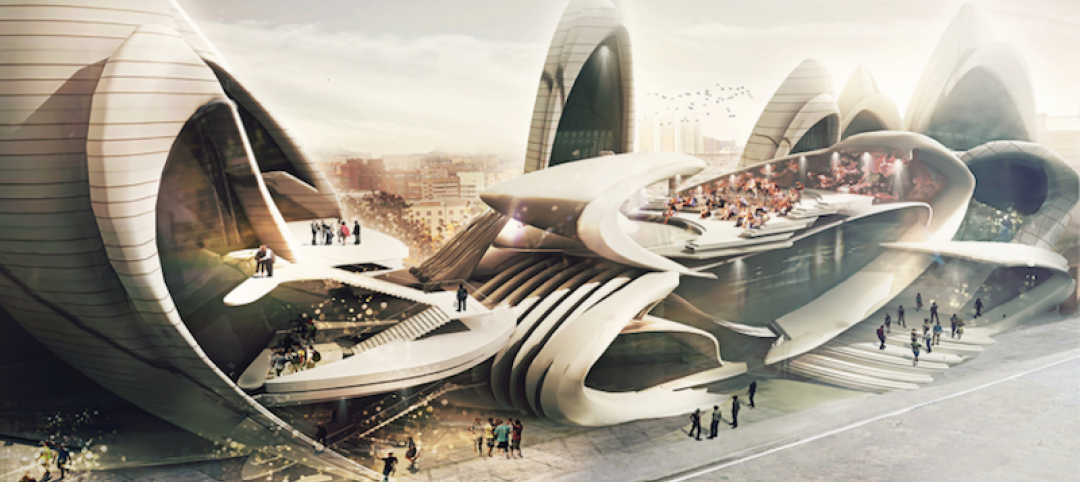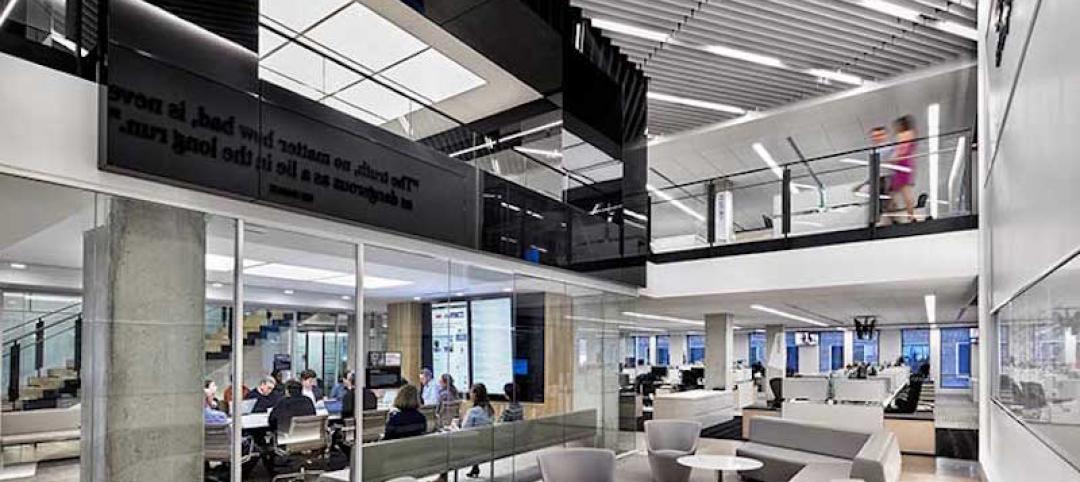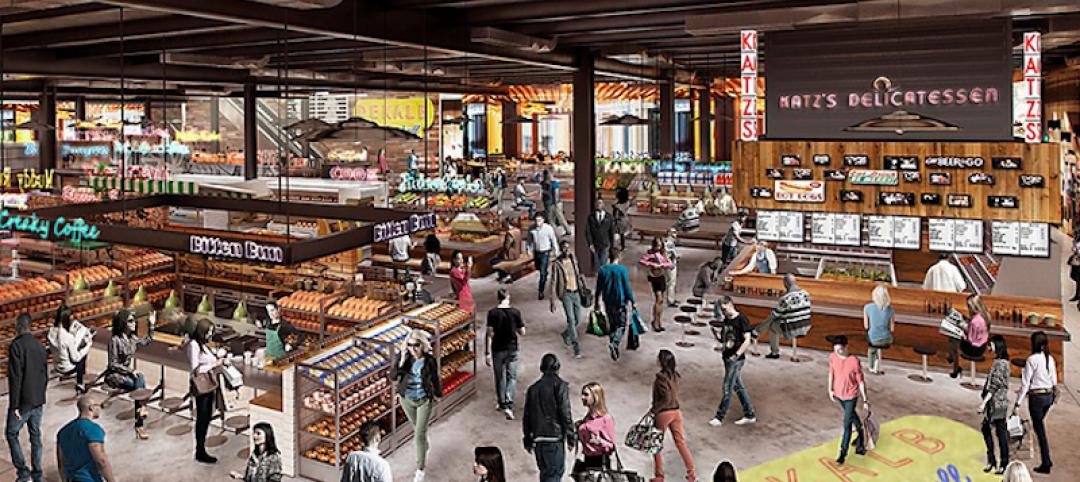The American Institute of Architects’ (AIA) Board of Directors has approved a landmark resolution—championed by AIA members—that defines immediate and long-term efforts to engage the architectural profession in the fight against climate change.
“This is a defining moment for the Institute,” said 2019 AIA President William Bates, FAIA. “We are making this our top priority in order to address the crisis our communities face. Moving the needle on this critical issue—that threatens the future of our planet and humanity—requires our firm commitment to achieving carbon neutral goals in the built environment and our immediate action. It’s imperative that the industry acts today.”
AIA and its members are rallying the profession to do more to fight climate change as buildings are one of the largest contributors to greenhouse gases. Moving forward, AIA will build on its more than 20 years of work supporting the design of sustainable and resilient communities by establishing goals to support mitigation and adaptation using the tenets of the comprehensive and holistic COTE Top Ten framework, now known as the AIA Design Excellence Framework.
Initially, AIA will focus its efforts on designing for energy, economy, and equitable communities. Additionally, the Institute will continue to encourage participation in the AIA’s 2030 Commitment and will work to develop new programs and resources that will support architects in fighting climate change.
The catalyst to the Board’s new landmark initiative was a resolution introduced by architect Betsy del Monte, FAIA, and fifty members of the Institute at AIA’s Conference on Architecture 2019. The resolution calls for revisions to AIA public policies and position statements and advocates that the Institute engage its full membership, clients, lawmakers, and communities in a multi-year education, practice, and advocacy strategy.
Related Stories
Architects | Sep 26, 2016
Explore the world through architectural adventures
A new travel program offers design enthusiast travelers 10 global destinations.
Architects | Sep 21, 2016
DLR Group broadens its practice range and market penetration with addition of Westlake Reed Leskosky
The merger, say company officials, creates “a global design leader” in a consolidating industry.
Architects | Sep 21, 2016
Design for the transition from thinking to creating
While heads-down work continues, the changing nature of learning and work has resulted in a shift toward frequent and spontaneous exchanges.
Codes and Standards | Sep 21, 2016
Healthy buildings becoming a key design priority for both architects and building owners
Nationwide survey finds nearly three of four architects cite health impacts influencing design decisions
Cultural Facilities | Sep 19, 2016
International competition recognizes insect-inspired design for Moscow Circus School
The proposal would make the school’s activities more transparent to the public.
Architects | Sep 19, 2016
A workplace designed for the innovation economy
Over the past 100 years, how we work has changed dramatically, and these changes have impacted workplace design.
Architects | Sep 16, 2016
Former architect now builds architectural wonders out of LEGO blocks
Adam Reed Tucker’s creations are currently on display at the Museum of Science and Industry.
Architects | Sep 15, 2016
Implicit bias: How the unconscious mind drives business decisions
Companies are tapping into the latest research in psychology and sociology to advance their diversity and inclusion efforts when it comes to hiring, promoting, compensation, and high-performance teaming, writes BD+C's David Barista.
Museums | Sep 14, 2016
Architectural model museum opens in Japan
The museum includes models from Japanese architects including Shingeru Ban, Kengo Kuma, and Riken Yamamoto.
Designers | Sep 13, 2016
5 trends propelling a new era of food halls
Food halls have not only become an economical solution for restauranteurs and chefs experiencing skyrocketing retail prices and rents in large cities, but they also tap into our increased interest in gourmet locally sourced food, writes Gensler's Toshi Kasai.

















